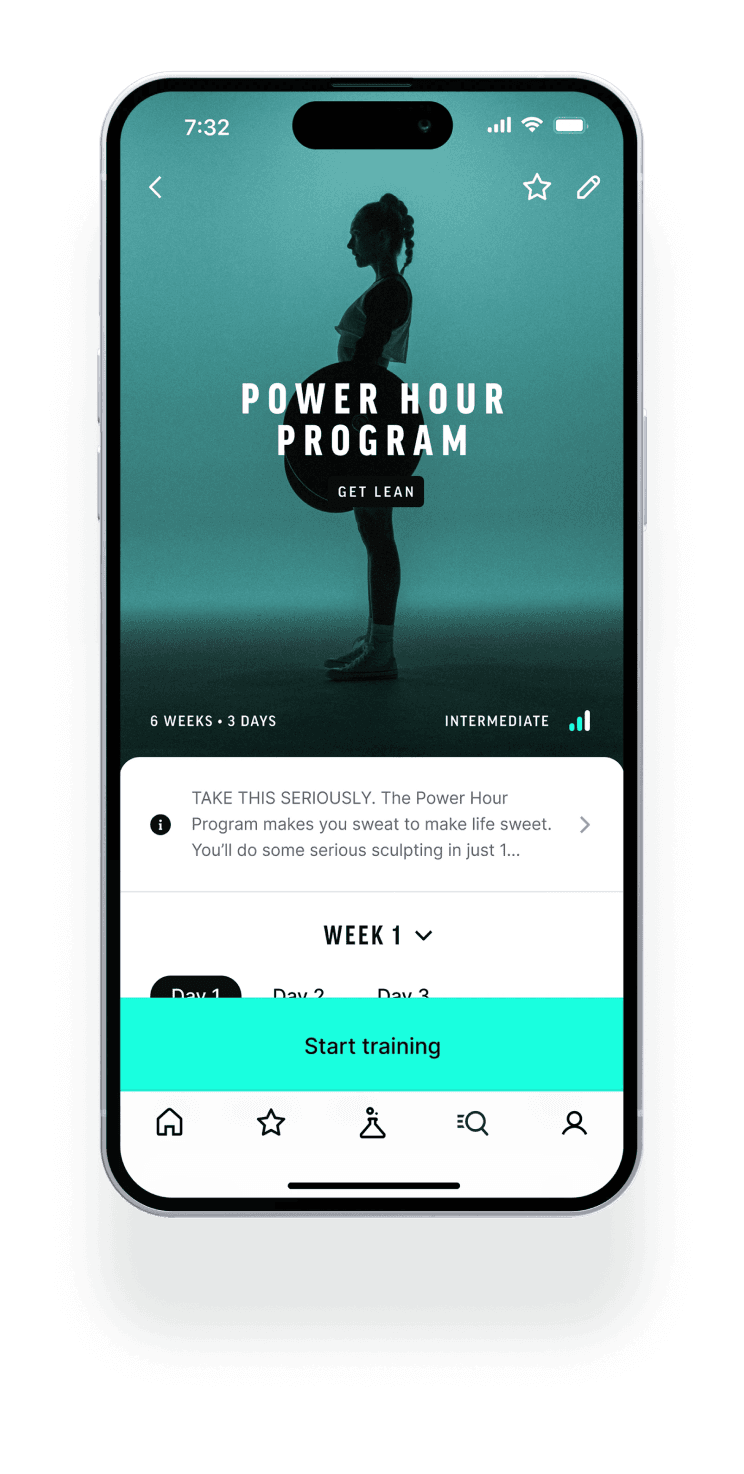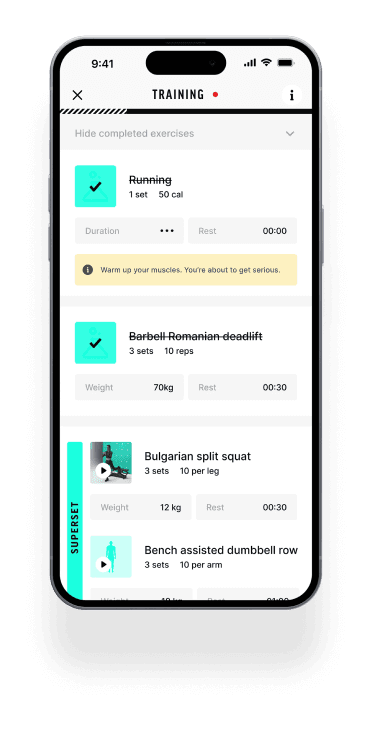Why losing weight and maintaining it is seriously hard
By Sander Kers• January 11, 2024• 4 min•Nederlands 🇳🇱

People with Overweight are Starting at a 10-0 Disadvantage in Weight Loss
Losing weight seems simple. Just consume fewer calories than you burn. Keep this up for a few months, and you'll have the body of your dreams. Slim people might find it easy to say, but those who have gained weight are literally starting with a 10-0 disadvantage.
In this article, we'll look at the changes in the body when you lose weight and why it's much harder for overweight people to lose weight and then maintain it. Of course, you'll get some serious tips to still achieve a sustained lower weight.
Satiety Hormones and Hunger Hormone
Before you can understand why losing weight and then maintaining it is so difficult, you need to know about the hormones involved. Life is all about survival. For this, you need air, water, and food. Breathing comes naturally to us, but sometimes you need a little push to eat and drink. You experience this in the form of thirst or hunger.
Hunger and satiety in your body are finely orchestrated by hormones including ghrelin (hunger) and leptin, PYY, CCK, and GLP-1 (all satiety). The latter three hormones send a signal of satiety from the stomach and intestinal system when nutrients pass through and the system stretches.
Ghrelin and Leptin
When the stomach is empty for a while, ghrelin sends the following message to the brain: “Kickstart the hunger feeling, it's time to fill the stomach again”. Fat tissue communicates by secreting the hormone leptin, among others. When fat stores are sufficient, leptin tells the brain that appetite can be reduced and metabolism can be increased. Exactly how leptin influences metabolism isn't fully clear, but it affects the thyroid hormone, noradrenaline, and adrenaline. By tweaking these, you can speed up or slow down the metabolism.
Remember, less leptin slows down the metabolism, and fat secretes leptin. The more fat you have, the more leptin it secretes…
People with Overweight Have a "Life Sentence"
I sometimes jokingly say that a dietitian might be better off with a little belly and having tried to lose weight themselves (multiple times). A slim dietitian or trainer who has never been overweight doesn't really know what someone with overweight experiences. If you're not yet overweight, the big advice is: keep it that way! Once you've become seriously heavier, from 10% extra body weight in the form of fat, it's kind of a life sentence if you want to lose weight and then stay at that weight.
Weight Loss Leads to Lower Metabolism
Every person has a slightly different metabolic rate. Some seem to eat endlessly without gaining weight, while others gain weight just thinking about sweets. The differences aren't that huge, but there is a significant difference between people who have lost weight and those who have always maintained the same (low) weight. Research showed that people who lost 10% of their starting weight needed up to 22% fewer calories per day to maintain their reduced weight than someone who has always been at that weight. This means if you go from 88 to 80 kg, you can eat 250-400 kcal less per day than someone who has always weighed 80 kg to stay at 80 kg.
Your body becomes more efficient when you've lost weight, both at rest and during activity. Efficiency is not only disadvantageous in terms of staying at a weight, but it also compromises tasks the body normally performs, such as refreshing skin cells or muscle tissue. When you lose fat mass, it secretes less leptin than the control center in the brain is used to. As a result, the metabolic rate decreases (you need fewer calories to maintain weight), and you experience more appetite than ever!
More Appetite Than Ever
People who lose 10 percent of their body weight react much more strongly to the sight of food than those who have not lost weight. Remember the effect of leptin. It tells the control center that the fat mass is in order and the body doesn't need to suffer from hunger. However, your brain is accustomed to the amount of leptin from your peak weight. Less fat mass means less leptin, and therefore you never reach the desired amount that your brain is used to. This means you never get the signal that you've eaten enough. Not being satisfied means hunger, and hunger leads to cravings. Combine this with the pleasant substances your brain always produces after you eat something tasty (hedonistic eating), and you can understand why the craving for food is present all day. In some studies, this effect, along with the lower metabolism, persists for more than 5-6 years. This means that even after 5 years at a lower weight, your body is still not (completely) accustomed to the new leptin norm.
Compare Weight Loss to Hearing Loss
Always being hungry after weight loss can be compared to hearing loss. Suppose you always have the TV volume at 40. You hear everything perfectly. Over 20 years, you need volume 50 to hear the same, and as you get older, even volume 60 or 70. Imagine someone keeps turning down the TV volume and then leaves the room, giving you the remote. What would you most want to do immediately? Exactly, press the volume button to hear the TV properly again.
Suppose your body is always used to leptin level 70, and after weight loss, it only secretes leptin level 60, what would you always want to do? Exactly: eat! Your brain apparently does not adapt to the new leptin levels, just as your hearing never improves again.
How to Lose Weight Sustainably with Overweight
Always being hungrier and less satisfied may seem like an unbeatable opponent. That's why you need to tackle this opponent with the same determination they use to make you gain weight again. Here are some tips not just for losing weight, but also for maintaining it:
Sleep at least 7 hours a night. Lack of sleep is associated with lower leptin levels and higher ghrelin levels. This means starting your day hungry. With enough sleep, these hormones balance out, keeping leptin levels high and ghrelin low. The day's challenge becomes much easier.
Choose high-volume, low-calorie foods. When your stomach expands, the release of ghrelin (hunger) decreases. Water and products with soluble fibers (think vegetables, fruits, and legumes) are a smart way to silence the hunger hormone.
Add proteins and fats to every meal in moderation. These nutrients increase the release of satiety hormones in your intestines.
Eat slowly, as the satiety hormones only start to really take effect after about 20 minutes.
Eat from a smaller plate and with smaller cutlery. The illusion that you're still eating a lot has a seriously strong effect on the feeling of fullness.
Serve your food in the kitchen, not at the table. The delicious smell from a pan on the table invites you to serve yourself again.
Increase your metabolism (i.e., energy consumption) by moving more. When you're moving, your body isn't focused on eating, as the blood needs to go to your muscles. A very big win-win situation. It's no coincidence that sustained weight loss is much easier when you add exercise to your lifestyle. Choose a tailor-made plan to make it even easier for yourself.
Gaining Back to Your Original Weight is Perfection
It may not surprise you, but your body tries to make you gain weight back to exactly your starting weight. At that weight, the leptin levels are as the control center is used to. If you continue to eat more after that and your fat mass grows to a new high, this becomes the new normal. In other words, make sure you never stay at a new peak for too long! A little spike after the holidays or vacation and quickly return to your 'normal self'.
Choose a plan with the goal of losing weight (get lean/get toned) to quickly return to your 'normal self' or to lose extra weight. You can do this.
START TRAINING SERIOUSLY
Discover new training methods based on scientific knowledge, improve your form and technique and seriously track your fitness goals.


Scan the code on your phone to download the app in the Apple appstore.

Of gebruik seriousfitnesslab.com/download